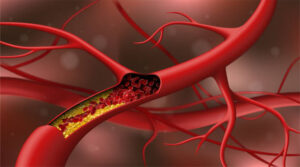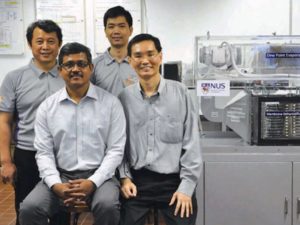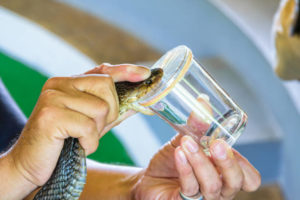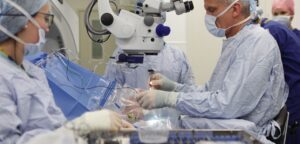BLOG
Today's world of innovation is simply breathtaking. Here are but a few examples of this amazing reality .

TYPE 1 DIABETES DEVELOPMENT
Researchers say they have made a breakthrough in the treatment of type 1 diabetes which could replace the need for regular insulin injections. Research published by Baker Heart and Diabetes Institute scientists shows they have manipulated existing pancreatic stem cells to prompt them to produce insulin. The study from the Melbourne

TYPE 2 DIABETES TREATMENT
A Cairns, Australia, biotechnology company has its sights set on curing Type 2 diabetes – with a little help from Northern Australia’s unique array of parasitic worms. Macrobiome Therapeutics and James Cook University’s (JCU’s) Australian Institute of Tropical Health and Medicine (AITHM) will collaborate on a new $2.2 million R&D

REPAIRING HEARTS w/ DEADLY SPIDER VENOM
A new development from Austrlia’s University of Queensland holds the promise of a potentially life-saving treatment for heart attack victims that researchers there have discovered from a very unlikely source – the venom of one of the world’s deadliest spiders. A drug candidate developed from a molecule found in the

CORONARY PLAQUE MEASURMENT DEVICE
A new Australian company called Nirtek is gearing up to develop and commercialise innovative technology that uses lasers to detect unstable coronary plaques, the leading cause of deadly heart attacks. Fatty deposits known as atherosclerotic plaques can build up over time in the walls of the arteries, leading to coronary

BRAIN EDEMA MECHANISM
A team of UBC researchers has made a significant discovery uncovering the cause of brain swelling after trauma to the head. Their research, published today in Cell, paves the way for a preventative drug treatment for severe brain damage following stroke, infection, head injury or cardiac arrest. By turning off

A SOLUTION to FOREVER CHEMICALS
Engineers at the University of British Columbia have developed a new water treatment that removes “forever chemicals” from drinking water safely, efficiently — and for good. “Think Brita filter, but a thousand times better,” says UBC chemical and biological engineering professor Dr. Madjid Mohseni, who developed the technology. Forever chemicals, formally

A NOVEL PRESBYOPIC CONTACT LENS
Lentechs, a clinical-stage ophthalmic medical device company developing a new generation of soft, suspended contact lens, designed to transform the treatment paradigm for presbyopia, announced the closing of a successful fundraise to further key development objectives for its investigational contact lens for patients with presbyopia. Presbyopia is a natural part

SKIN TISSUE & SMART BANDAGES
Researchers at Melbourne’s Swinburne University are developing a methodology to grow skin tissue in order to advance smart bandage technology. A Swinburne bioengineering team has begun to make lifelike skin tissue to further studies on innovations such as cutting-edge smart bandages. The concept is that a technical bandage could attract and

CAPILLARY and BLOOD FLOW ANALYTICS
Capillary and blood flow analytic technology is being developed by researchers at Swinburne University’s Iverson Health Innovation Research Institute (Melbourne, Australia) focusing on image processing techniques that will support automatic measurement of features such as capillary density, vascular branching and branching fractals, as well as assessing blood flow. By developing

A TYPE 1 DIABETES BREAKTHROUGH?
A parasitic worm is providing a breakthrough in the development of a diabetes cure. Type 1 diabetes occurs when the body’s immune cells in the pancreas, an organ about the size of a hand that is located behind the lower part of the stomach. These cells — called beta cells–

AUTO-ADJUST SPECTACLES
In many parts of the world, even the basics of vision care are not available. Something as simple as a pair of spectacles are often out of reach because of cost or because no trained Eye Care Professional is available. To address this problem, several companies have engineered simple,

ATOM LEVEL SECURITY TECHNOLOGY
An entirely new approach to digital security might fundamentally change how equipment and software authentication might happen. An atomic-scale fingerprint could boost the security of connected devices, according to British scientists who have developed it. The researchers from the UK universities of Lancaster and Manchester built tiny, layered metallic structures

OCEAN SPHERES AQUACULTURE
A remarkable patented technology exists which has potential to raise premium-grade ahi and bluefin tuna in a controlled and predictable manner. A variety of innovative aqua technology platforms are currently available, but perhaps none with more potential than a gigantic highly-automated, ocean-based aquaculture platform that is capable of grow-rates exceeding

AN ADVANCE in AC TECHNOLOGY
All-weather friendly cooling technology works without mechanical compressors or chemical refrigerants, and generates drinking water Imagine a technology capable of cooling buildings and homes in an economical and eco-friendly way, even in the most challenging of climates. That possibility might become reality soon by a team of researchers from the

ANTI-VENOM PROGRAM
In many nations, particularly poor ones, the threat to human life from poisonous snakes is frighteningly high, and anti-venom often in short supply and costly. A radical new approach to produce anti-venom in laboratory holds great promise to address this serious problem. Anti-venom has been made in essentially the same

A NEW AMD GENE THERAPY PROCEDURE
Researchers at Oxford University are developing an amazing gene therapy technique using cloned DNA may bring relief to patients suffering from macular degeneration. A key factor in AMD is the complement system, a system of proteins in our immune system that fights bacteria. In macular degeneration, these proteins
the more I believe that science excludes atheism."

